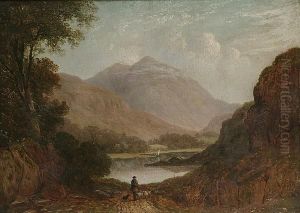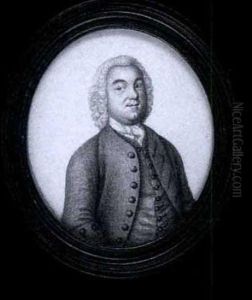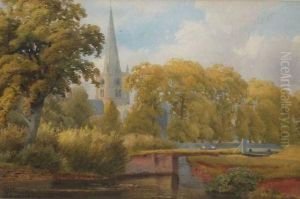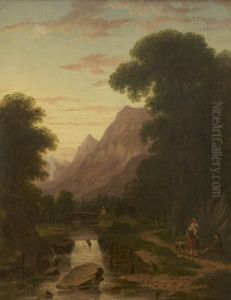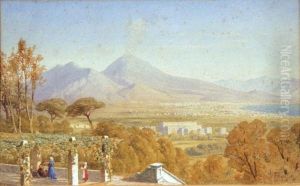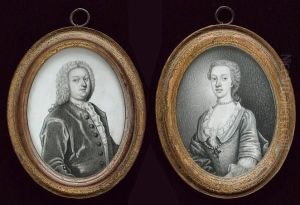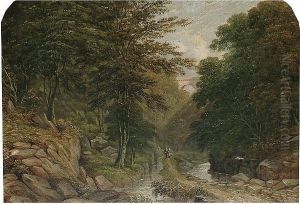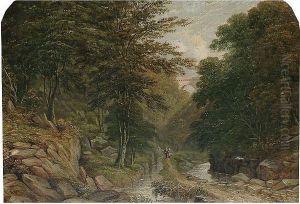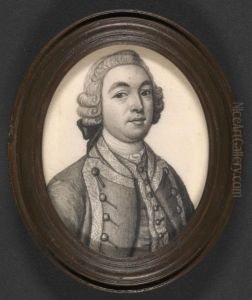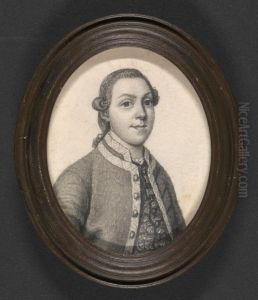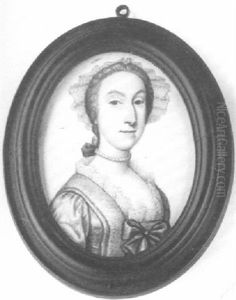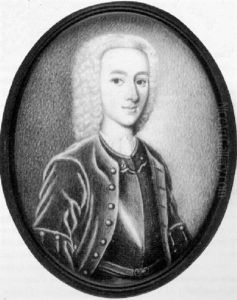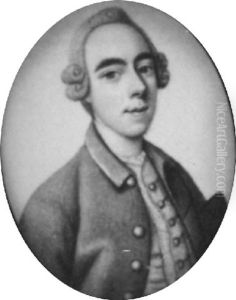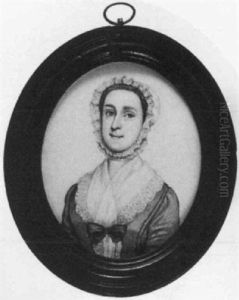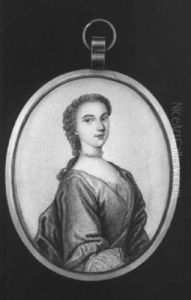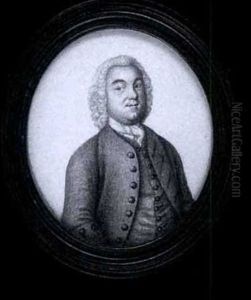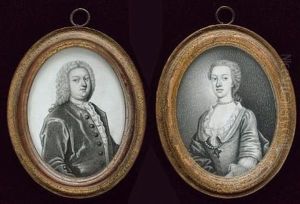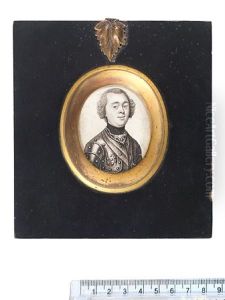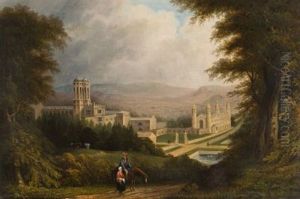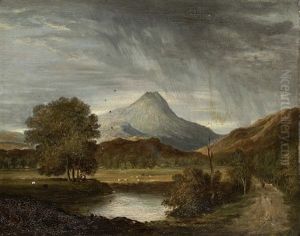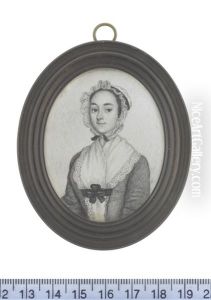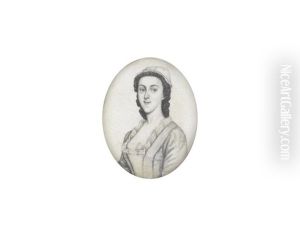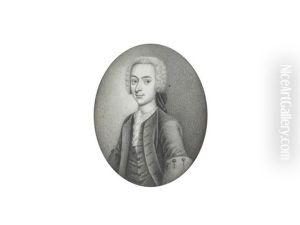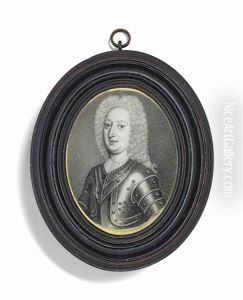James Ferguson Paintings
James Ferguson was a prominent Scottish scientist and self-taught astronomer, known for his contributions to astronomy and for his ability to communicate complex scientific ideas to the public. Born into a humble family in the village of Core of Mayen, near Rothiemay, Banffshire, Scotland, on April 25, 1710, Ferguson's early life was marked by poverty and limited formal education. However, his keen interest in mechanics and the natural world drove him to educate himself, particularly in the fields of astronomy and physics.
From a young age, Ferguson showed an extraordinary aptitude for understanding mechanical devices, reportedly drawing diagrams in the sand to figure out the workings of mills and other machinery he encountered. Despite his family's financial constraints, he managed to get access to books and instruments that furthered his self-education in astronomy. Ferguson moved to Edinburgh in his late teens, where he began to make a name for himself by creating detailed astronomical models and clocks.
His skill in crafting planetariums, which demonstrated the movements of the solar system, caught the attention of the intellectual elite of Edinburgh, and he soon found patrons willing to support his work. Ferguson's ability to explain astronomical phenomena in clear, understandable terms made him a popular lecturer on scientific subjects. He published several books on astronomy, including 'Astronomy Explained Upon Sir Isaac Newton's Principles' (1756) and 'The Use of a Globes' (1764), which were well-received and widely read, contributing significantly to the popularization of astronomy in the 18th century.
Throughout his career, Ferguson remained devoted to teaching and sharing knowledge. He was particularly interested in making science accessible to people without a formal education, which was reflected in his public lectures and writings. Despite his lack of a traditional academic background, Ferguson was recognized by the scientific community of his time. He was elected a fellow of the Royal Society of London in 1763, a testament to his contributions to the field of astronomy and his remarkable ability to bridge the gap between complex scientific ideas and public understanding.
James Ferguson passed away on November 17, 1776, leaving behind a legacy as a pioneer in popularizing science and astronomy. His life's work demonstrated the power of curiosity, self-education, and the ability to communicate knowledge, inspiring future generations of scientists and educators.
